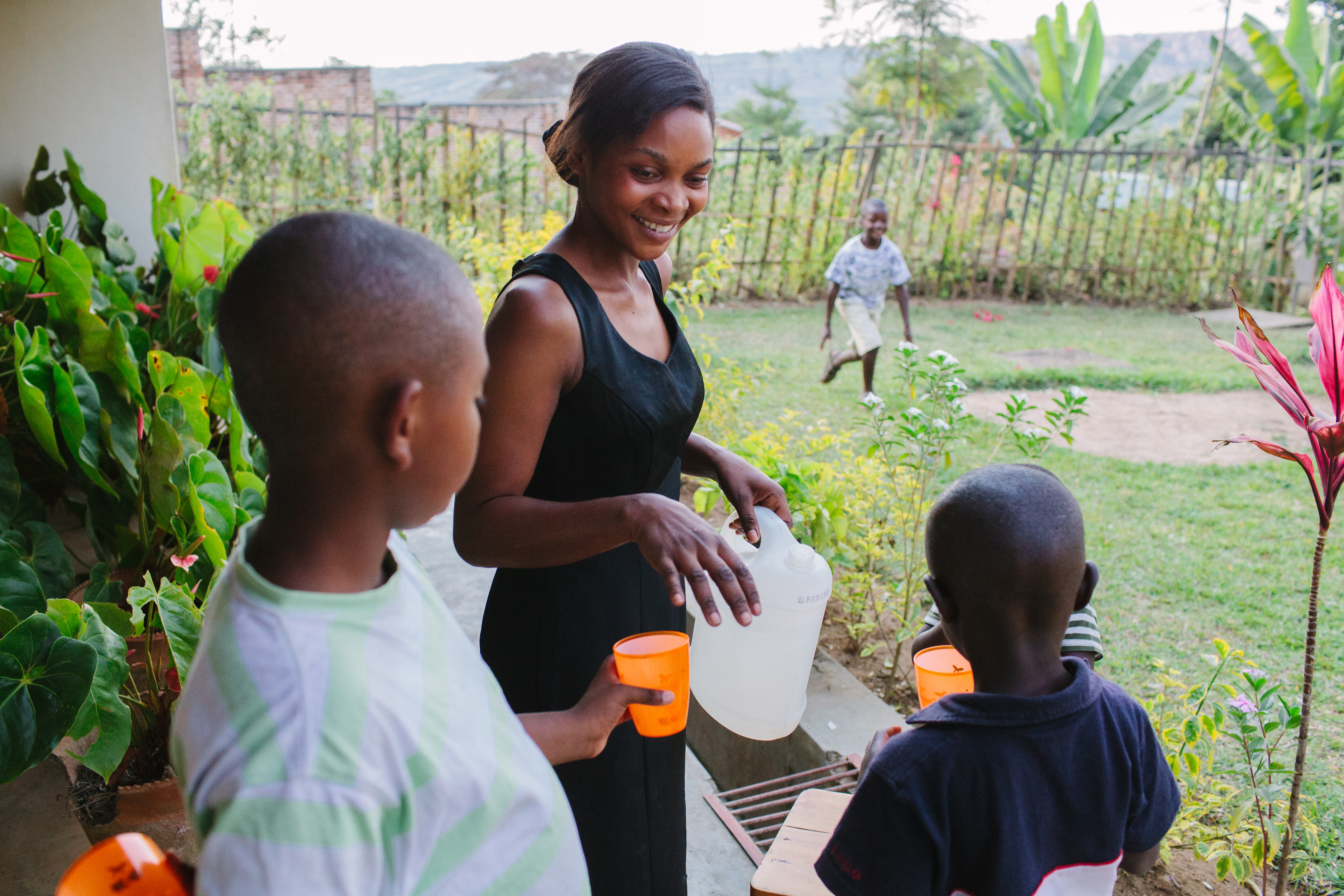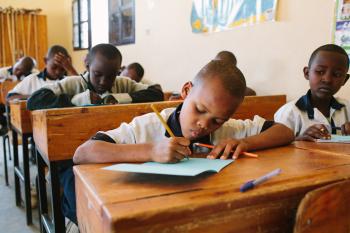A new generation of qualified professionals is urgently needed
-61334.jpg)
Kigali is the capital of Rwanda and has a population of approximately one million. The city has been expanding rapidly in recent years, partially due to rural-urban migration and partially due to Rwandans returning home from abroad.
Life in the city’s informal settlements is extremely difficult: water supply, sanitation, electricity, waste collection, and drainage are not available. Narrow, unpaved walkways are the only means of access, which means ambulances or police cars cannot access most areas. Often, the walkways double up as drainage, making them prone to flooding. Much of the city, however, retains a rural character: up to 70 per cent of its area is used by subsistence farmers. But the trend towards urbanisation is likely to continue, and the demand for infrastructure and services will become progressively greater.
Over 50 per cent of Kigali’s population is under the age of 15, and 27 per cent are between the ages of 15 and 29 – many of these young people experienced the terrible events of 1994, and many of them lost family or were left to care for younger siblings or relatives. It is estimated that five in six children suffered a trauma during the genocide.
Children and young people in Kigali today face tough living conditions: between 5,000 and 10,000 children live on the streets. In many cases, they have lost their parents, their relatives are unable to care for them due to their own poverty, or they have run away from a difficult situation at home. These children are exposed to innumerable dangers, such as becoming victims of violent crime or sexual exploitation.
Poverty also drives young girls and boys to accept presents or money from older men and women, a so-called “Shuga Dadi” or “Shuga Mami”, in exchange for sexual favours. Cross-generational sex puts young people at the risk of contracting HIV or falling pregnant at an early age. This, in turn, can lead to dropping out of education and diminished opportunities later in life.
An urgent need to provide support to families
SOS Children’s Villages began its work in Kigali in 1979. Due to the escalation of the violence between the warring Hutu and Tutsi, SOS Children’s Village Kigali had to be evacuated in 1994 and the children were moved to safer emergency accommodation. In 1995, the situation had stabilised enough for children and co-workers to move back to the children’s village.
What we do in Kigali

We are currently reviewing the way we support children and families in Kigali. These are the activities which we plan to continue over the next few years:
Strengthen families: We ensure that children have access to essential educational, nutritional and health services, and we support parents in protecting and caring for their children, for example by offering guidance on income-generating skills and parenting. In cooperation with local authorities, we also work towards strengthening the support systems available within the community.
Care in SOS families: We provide some direct care to children who are not able to live with their families. In some cases this is only until a more permanent home can be found for them.
Education: Around 75 children attend the SOS Kindergarten. The SOS primary school in Kigali is attended by around 650 pupils, making it a valuable educational institution here. 246 students also have the option of attending the SOS Vocational Training Centre.
Support for young people: We support young people until they are able to live independently. We provide them with training and liaise with local businesses so that they can gain work experience.
Health care: The SOS Medical Centre provides basic health care and treatment, check-ups and preventive measures to members of the local community who may not otherwise be able to afford these services. In 2017 we started a mental health project to counsel children and young people.